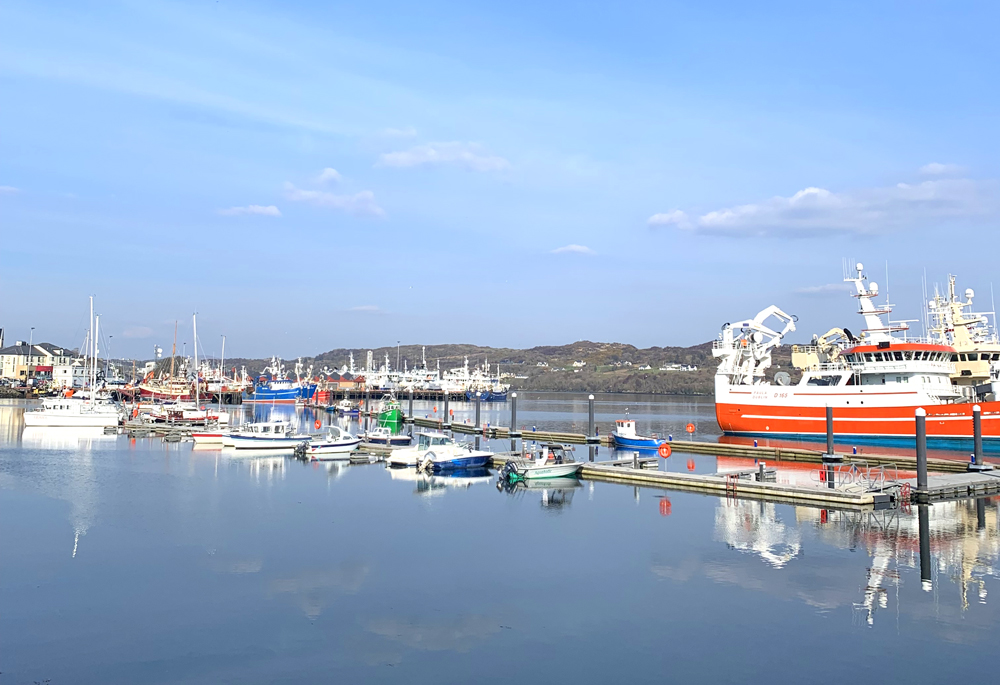Morale in the Irish fishing industry is at an all-time low as rocketing fuel costs, shrinking quotas and the lingering legacy of Brexit are all proving extremely problematic.
This will be the message brought to an Oireachtas Committee later today by the Killybegs Fishermen’s Organisation (KFO).
KFO Chief Executive, Seán O’Donoghue, said the challenges facing the sector are manifold.
And, although complex, his members have presented and agreed solutions to all of the key issues which are realistic, credible and based on scientific evidence.
Mr O’Donoghue emphasised the current situation whereby high-level negotiations are ongoing at year-end, meaning fishermen still have no coherent nor clear instruction as to what they can catch – and when – for 2023.
“As happened last year, the Commission is likely to propose provisional TACs (Total Allowable Catch) and quota figures for next year,” he said.
“This is as a result of the fact that we are awaiting the outcome of EU/UK bilateral negotiations which affect the vast majority of 75 shared fish stocks, most of which are crucial to the Irish fleet. This is totally unsatisfactory and caused a major problem for our fishing sector last year with the final figures published three months into the year.”
Elsewhere, Mr O’Donohue added, the minister simply must ‘get his act together’ and urgently distribute monies which his government committed to providing for pelagic fishermen more than 14 months ago.
“Just over €423million was recommended in October 2021 with the Task Force rightly recognising that the end of the Brexit withdrawal period brought about the biggest change and disruption in EU-UK relations in 50 years, across all aspects of trade and society but most notably on the Irish seafood sector,” he explained.
“Our pelagic fishermen have still to see a single cent of this money. In 2021 and 2022, the sector has lost approximately 24,000 tonnes of mackerel quota valued at €35million. This fishery is the cornerstone of our business. We’ve been feeling the hit from Brexit for two years now with further hits to come over the next three years.
“We’re not going anywhere and to be overlooked in this manner is an appalling affront. Government has waxed lyrical and lauded the positives of this taskforce report but all the while, has produced diddly-squat for our pelagic members who are getting angrier by the day.
“Last but by no means least, the Irish Government has been given approval by the Commission for a fuel support scheme for the sector which is already in place in many other EU member states. Governments in those countries have acted swiftly to provide a beleaguered industry with financial support to offset the huge spike in fuel costs. Approximately half of our members’ gross earnings are expended on putting fuel in their boats. It’s placing Irish vessels at a major disadvantage compared to our EU counterparts which have had the scheme implemented in their respective countries,” concluded Mr O’Donoghue.
The KFO will also highlight the important issue of the Danish mackerel quota in Norwegian waters which comes from western waters mackerel stock as well as underlining the significant increase of 81% in the blue whiting TAC for next year. Given the proximity of Ireland to the main fishing grounds of this stock, landings into Ireland are attractive for foreign vessels.
“It is therefore of critical importance that any transfer to Norway in the ongoing EU/Norway negotiations is kept at a very low level and that access to the Irish Box is paid for by the transfer of blue whiting quota.”
Tags:








